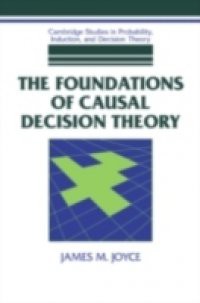This book defends the view that any adequate account of rational decision making must take a decision maker's beliefs about causal relations into account. The early chapters of the book introduce the non-specialist to the rudiments of expected utility theory. The major technical advance offered by the book is a 'representation theorem' that shows that both causal decision theory and its main rival, Richard Jeffrey's logic of decision, are both instances of a more general conditional decision theory. The book solves a long-standing problem for Jeffrey's theory by showing for the first time how to obtain a unique utility and probability representation for preferences and judgements of comparative likelihood. The book also contains a major new discussion of what it means to suppose that some event occurs or that some proposition is true. The most complete and robust defence of causal decision theory available.

